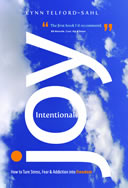Americans Are Addicted to Fear
 Monday, August 22, 2011 at 11:43AM
Monday, August 22, 2011 at 11:43AM  4 Comments
4 Comments 
Americans are addicted to fear and here's one story about why. A cute, athletic teen was running near her home. She noticed a car following a short distance behind her. As she paused to look at the car, three scary looking men got out and started after her. She ran around a corner and hid, then went to a neighbors and called 911. The police apprehended the men - all registered sex offenders. How often does this type of event happen? Not nearly as much as the media would have us believe. Bear with me for a moment and read to the end to find out if this story is true or not.
When we hear a story like the one above, we extrapolate to all the dangerous things that could happen to our children or our loved ones. James Breckenridge, a professor of psychology at Stanford University, says that... "negative information is stickier because the brain pays more attention to anything that appears threatening." What we don't focus on are all the safe children. From a positive view of this situation, this young woman knew what to do. She was aware of her surroundings and she immediately sought help. Carrying a cell phone is an extra precaution. "If it bleeds, it leads" headlines encourage us to believe that we live in a much more dangerous world than ever before. In our current “Culture of Fear,” as the author Barry Glassner states, the average person believes crime has increased in the U.S., while it actually plunged in the 1990s and is today about where it was in the 1970s.
"If it bleeds, it leads" headlines encourage us to believe that we live in a much more dangerous world than ever before. In our current “Culture of Fear,” as the author Barry Glassner states, the average person believes crime has increased in the U.S., while it actually plunged in the 1990s and is today about where it was in the 1970s.
The new brain science demonstrates that the brain’s neural pathways are stimulated by repeated emotions. The more we feel afraid, stressed, or sad, the more susceptible we become to those states. Over time these feelings become habituated. Much like the alcoholic who can’t stop drinking, the news or drama/trauma junkie, gets a sort of high.
What's the solution? Awareness and retraining our attention to seek out the positive. The above story is true and happened to a young teen in Stanislaus County. As a child of 7 I was molested by a stranger in my neighborhood. I called him "the pony man and he was creepy looking." He had a camera and took cute photos of kids on the pony. What the moms didn't know was that he was also molesting vulnerable children. Though I was an exception, research shows, that most children are hurt not by strangers, but by people they know. In the 60s we weren't taught about how to protect ourselves. I learned after my experience to trust my "oh-oh" feeling and stay away from certain men. Fear serves a purpose when it's protective without limiting our ability to trust and connect. Yes, we want to empower our children, but not terrify them.


























